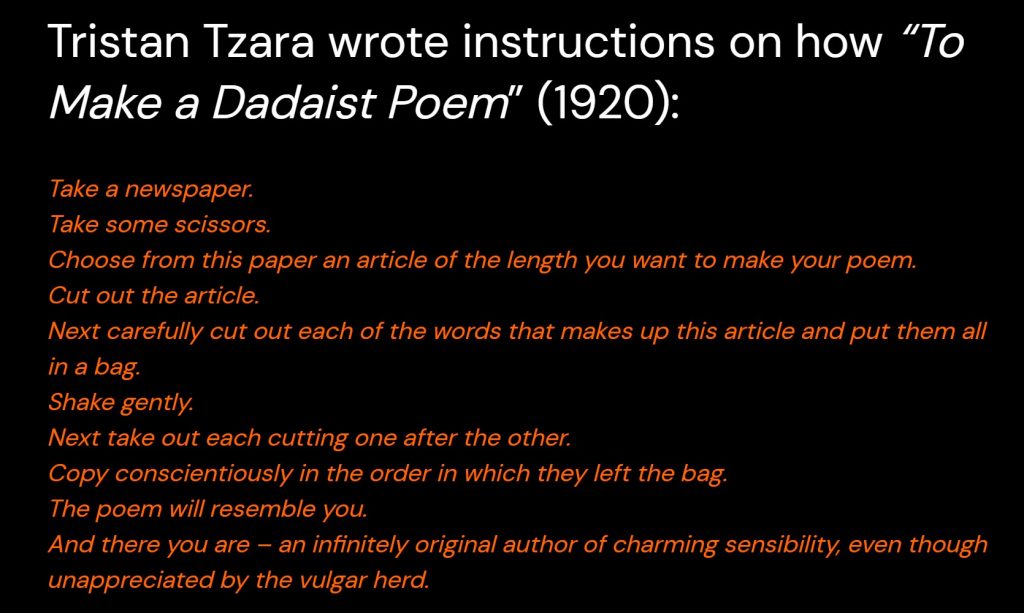When thinking about randomness, my mind went straight to Dada, specifically Dada poetry. So much of Dada itself is left up to chance: the process, the reaction, the viewer, the artist: this is especially true with Dada poetry. Paradoxically, Dada poetry often both gave instruction on how to create Dada art while considered a piece of Dada art itself. Tristan Tzara’s 1920 To Make a Dadaist Poem is a great example:
“Pick up a newspaper.
Take some scissors.
Choose in the newspaper an article of length that tells you to give your poem.
Cut out the item.
Carefully cut out each of the words that make up the item carefully and put them in a bag.
Shake gently.
Now pull each cutting one after another.
Copy conscientiously
In the order they have left the bag.
The poem will resemble you.
And you are an infinitely original writer and a bewitching sensibility, although misunderstood by the vulgar.”
There is obvious randomness in the actions described: random newspaper, random words, random order. But Tzara’s call to action is also given to a random artist. This serves the Dada goal of nonmeaning well. I have also been considering the fact that Dada poetry that prompts viewer response is similar in a lot of ways to programming. Obviously there are differences, but the fact that one is given a list of instructions to follow, usually phrased particularly does connect the two in my mind.

![[OLD SEMESTER] 15-104 • Introduction to Computing for Creative Practice](../../../../wp-content/uploads/2023/09/stop-banner.png)